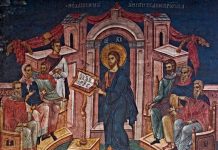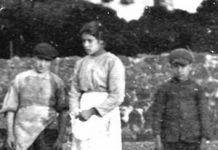The United Nations General Assembly has chosen this day, January 27th, to remember both the survivors and victims of the Holocaust. In this International Holocaust Remembrance day it is appropriate to acknowledge the Pope’s contribution to defend the Jewish people from persecution, prejudice and all sorts of terrible injustices they unjustly suffered throughout the ages.
Already in the fifth and sixth centuries, Pope St Gregory the Great strongly defended the Jews of Terracina, who were constrained by the Christians to move their Synagogue. On the same token he defended some Jews of Arles and of Marseilles who were forced to Baptism. Way back to the beginning of the ninth century, there was the publication of some pontifical bulls with the explicit purpose of protecting, amongst others, the Jews against the accusation of “sacrificial ritual.” As centuries rolled by and closer to our times, at the beginning of the twentieth century, Pope St Pius X protested against the pogroms. Whereas in 1928, the Holy Office condemned anti-Semitism, a condemnation repeated by Pope Pius XI in 1938.
Oftentimes Pope Pius XII is accused of doing nothing for the Jews during the holocaust. However the contrary is the truth. Pope Pius XII did a lot to save the Jews. The testimony of the archivist of the Secretariat of State, Johan Ickx through the stories he compiled, amply shows how Pope Pius XII helped to save Jews from the holocaust.
Nazi occupation meant a period of frenzied activity for the Vatican Secretariat of State. Ickx recounts: “This is the surprising part. These people (at the Vatican) continued working day after day against evil in its purest form. They often failed, naturally, because many times the governments refused to collaborate, and instead, blocked all their activities.” A case in point would be the hundreds of Jewish women from Slovakia who ended up being given to the Nazis’ friends as prostitutes. On its part, the Holy See did all it can, through its nunciature, to exhaust every diplomatic means to curb this awful scenario, unfortunately without success. Sometimes it looked like the Vatican was doing the opposite.
Another aspect that emerges from this book is that they had to act wisely, otherwise the punishments inflicted by the Nazis were enormous. Johan Ickx writes: “This too can be deduced from the book. They had to carefully weigh every situation to determine when, and when not, to take action, because they knew that the Nazis often increased their punishments when someone spoke out.”
Within the archives Icks came across the nuncio’s personal impressions following his meeting with then prime minister of Slovakia, Vojtech Tuka. The nuncio demanded the politician to halt deportations, but he found himself up against a brick wall. The prime minister depicted Jews as “the plague” and as “a group of evildoers.” As time went on the nuncio took note of this disheartening meeting. There is nothing more undesirable nor humiliating than talking to this man. Hence, John Icks concluded that it would be unfair to condemn the Vatican, labelling it as coward and indifferent when confronted with the atrocities done by the Nazi criminals as occurred in front of its very eyes.
The archivist of the Secretariat of State went on by saying: “All the history books repeat the same idea: that the pope looked the other way, that he chose not to act to help the Jews. FLASH I offer the reader a small sample of letters that show a completely different Pius XII and Secretariat of State.” Moreover, Johan Icks shows that there exist documents which openly portray that Pius XII was not “Hitler’s Pope,” as some unjustly have labeled him. Eugenio Pacelli was, in fact, a good friend of the president of the United States. Then, Johan Icks makes the following argument: “What do these documents show? They show a private friendship between Roosevelt and Pacelli that had existed for 30 years, when Card. Pacelli traveled to the United States as the Secretary of State.”
What clearly emerges from this book is that, through its compilation of stories, one can appreciate both the determination accompanied by powerlessness that Pius XII and his staff went through in their admirable efforts to save lives while the Nazis camped out on the Vatican’s doorstep.
The experience of Pope St John XXIII with the Jews utterly demonstrates a very powerful saving relationship of the former to the latter. In fact, as the holocaust was going on, Cardinal Angelo Giuseppe Roncalli, who was at the time a Vatican diplomat in Turkey, Greece and France, Angelo Giuseppe, managed to save numerous Jews, issuing false baptismal certificates to Jewish children. Subsequently, as Pope John XXIII, he called the Second Vatican Council (1962-1965) so as to throw open the windows of the Church and let the fresh air of the Spirit blow through. He told Cardinal Augustine Bea to shepherd a new Catholic approach in regards to Jews and Judaism.
Thanks to John XXIII today we have the transformational document Nostra Aetate (“In Our Time”), which speaks of the relation of the Catholic Church to Non-Christian Religions, put away the claim that Jews were responsible for Jesus’ crucifixion. Furthermore, it condemned any form of anti-Semitism as well as confirmed the notion of God’s eternal covenant with the Jewish people. John XXIII was bold enough to edit the disputable Good Friday prayer for the Jews, taking out a description of Jews as perfidious. Finally he splendidly welcomed a visiting Jewish group with the biblical exclamation, I am your brother, Joseph, referring to his birth name, Giuseppe.
In the year 2000, Pope St John Paul II courageously recognized, for the first time, the involvement of some Catholic faithful in the persecution of Jews. He spoke about the burden of guilt which Christians carried for the murder of the Jewish people. Pope St John Paul II kept reiterating his full condemnation of antisemitism, dubbing it as sinful as well as opposed to the very spirit of Christianity. In that year this great Pope did pay a bold and historic visit to Jerusalem. There he duly honoured the Holocaust victims with a memorable and emotional visit to Yad Vashem, and also prayed at the Western Wall, which is the holiest site in Judaism. As a devout pilgrim he put a prayer in a crevice of this holy wall which read: God of our fathers, You chose Abraham and his descendants to bring Your name to the nations. We are saddened by the behavior of those who, in the course of history, have caused these children of Yours to suffer, and asking your forgiveness, we commit ourselves to genuine brotherhood with the people of the covenant.
Significant is the pastoral visit made by Pope Benedict XVI at the Auschwitz Camp, on May 28, 2006. In that visit the German Pope said: To speak in this place of horror, in this place where unprecedented mass crimes were committed against God and man, is almost impossible – and it is particularly difficult and troubling for a Christian, for a Pope from Germany. In a place like this, words fail; in the end, there can only be a dread silence – a silence which is itself a heartfelt cry to God: Why, Lord, did you remain silent? How could you tolerate all this? In silence, then, we bow our heads before the endless line of those who suffered and were put to death here; yet our silence becomes in turn a plea for forgiveness and reconciliation, a plea to the living God never to let this happen again.
Pope Benedict’s heartfelt cry of anguish recalls what Pope St John Paul II said in his homily during the Holy Mass he celebrated on the territory of the former concentration camp on June 7, 1979:
I come here today as a pilgrim. As you know, I have been here many times. So many times! And many times I have gone down to Father Maximilian Kolbe’s death cell, paused before the execution wall and walked amid the ruins of the Birkenau ovens . It was impossible not to come here as Pope. Therefore I have come to this specific shrine, in which – I may say – the patron of our difficult century was born, similarly as nine centuries ago, Stanislaus, the patron of the Polish people had been born under the sword in the Skalka church. But I come here today, not only to worship the patron of our century. I come so as to confront once again the main problem of man. Naturally, I am also coming here today to pray together with all of you who have gathered here – and together with the whole of Poland – the whole of Europe. Christ wants me as the successor of St. Peter to testify before the whole world what the greatness and the misery of the man of our times consists in.
Pope Francis also visited this infamous Nazi death camp of Auschwitz-Birkenau Memorial and Museum. His visit was especially marked by deep silence. In fact, before his visit he decided not to give a speech. On the contrary, he wanted to enter on his own, praying silently. He said: I would like to go to that place of horror without speeches, without crowds — only the few people necessary. Alone, enter, pray. And may the Lord give me the grace to cry. He prayed silently in St Maximillian Kolbe cell, the great man who gave his life for his brother prisoner of the camp.
Interesting is his appeal of Wednesday 27 January 2021, from the Library of the Apostolic Palace, at the end of his weekly audience:
Today, the anniversary of the liberation of the extermination camp at Auschwitz, we commemorate International Holocaust Remembrance Day. We commemorate the victims of the Shoah and all the people persecuted and deported by the Nazi regime. Remembering is an expression of humanity. Remembering is a sign of civilization. Remembering is a condition for a better future of peace and fraternity. Remembering also means being careful because these things can happen again, beginning with ideological proposals that claim to save a people and ending by destroying a people and humanity. Be aware of how this road of death, of extermination and brutality began.
This was just a simple and humble sip to show how various Popes were and seriously committed not just to denounce the Holocaust but, together with our brothers and sisters the Jewish people and people of other faiths and good will, work together for a more fraternal world based on solidarity, peace, justice, truth, mercy and fraternity.









